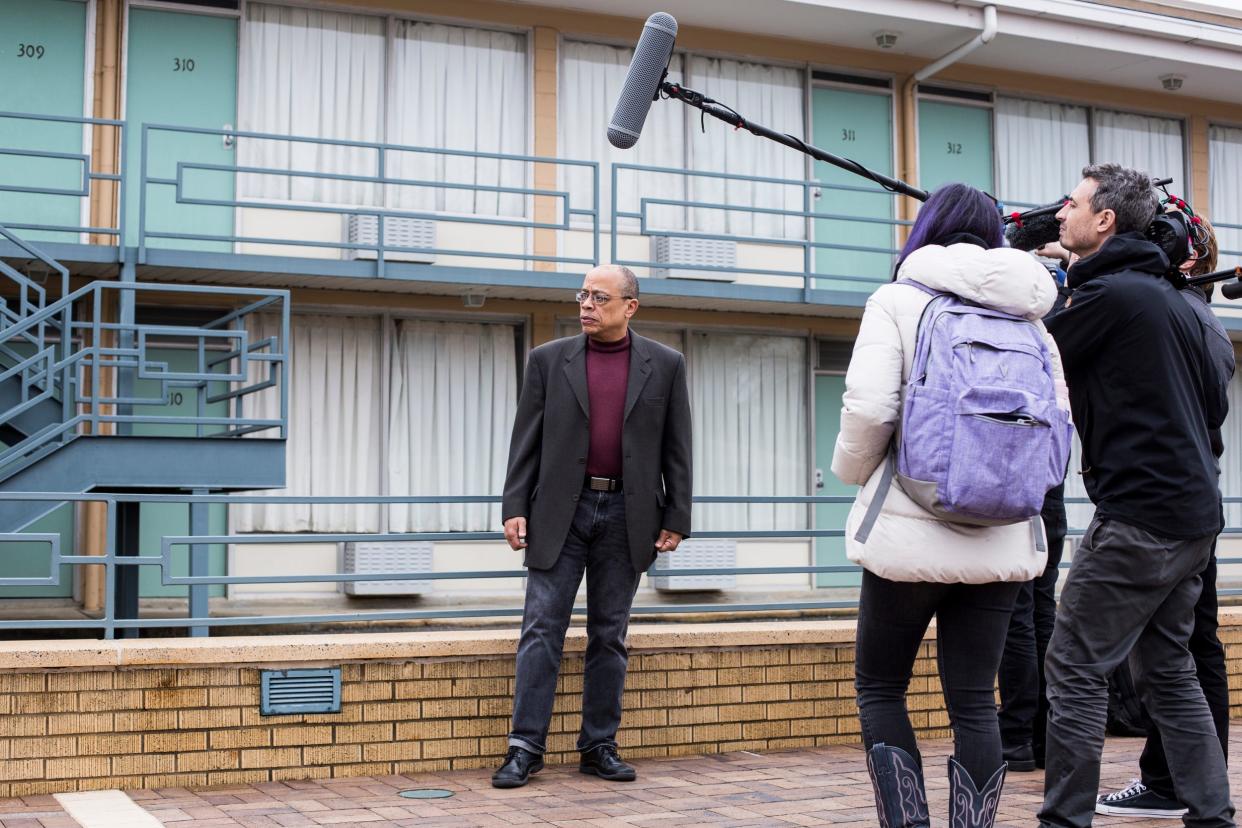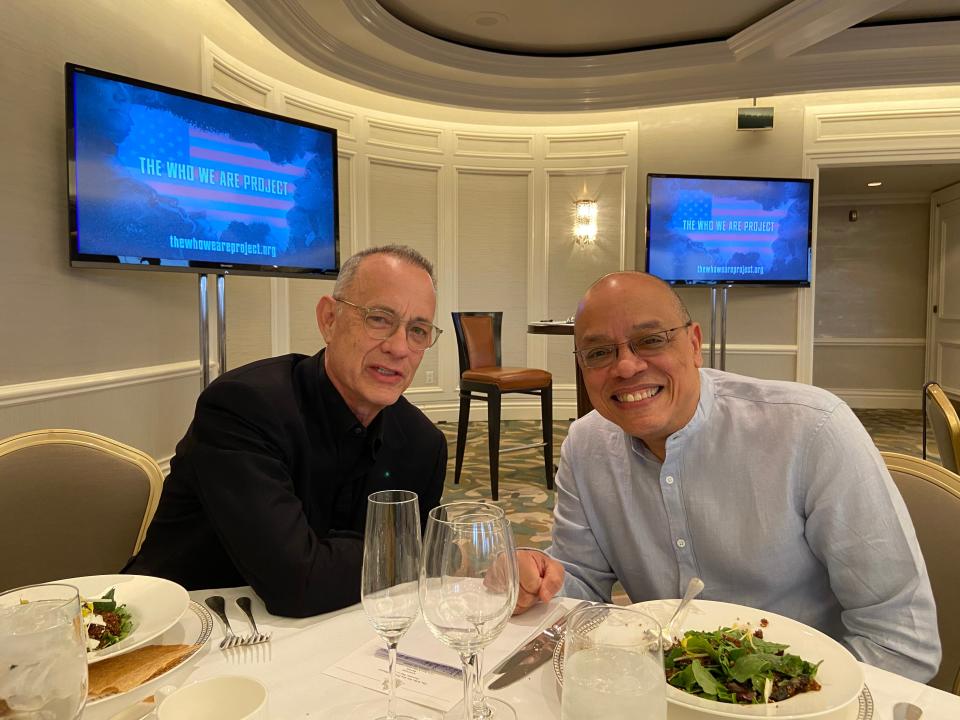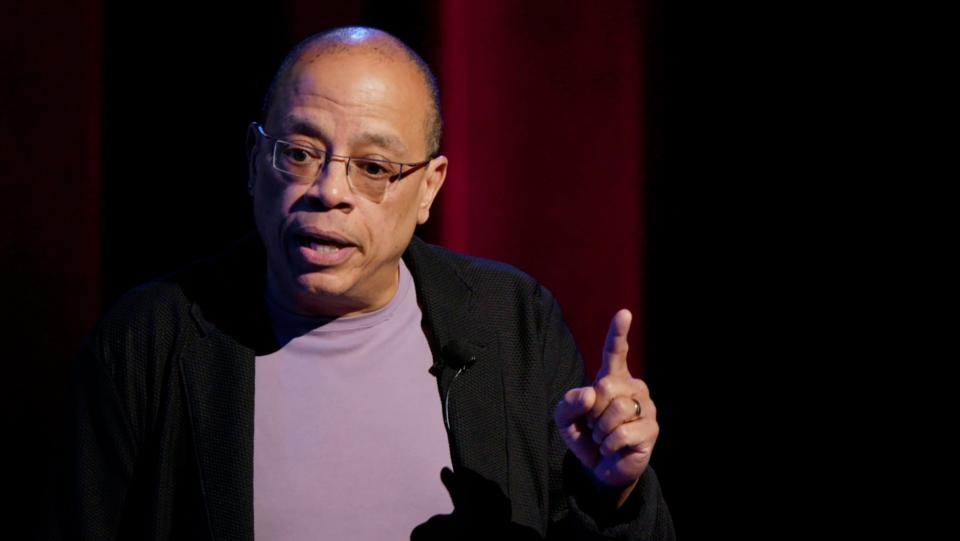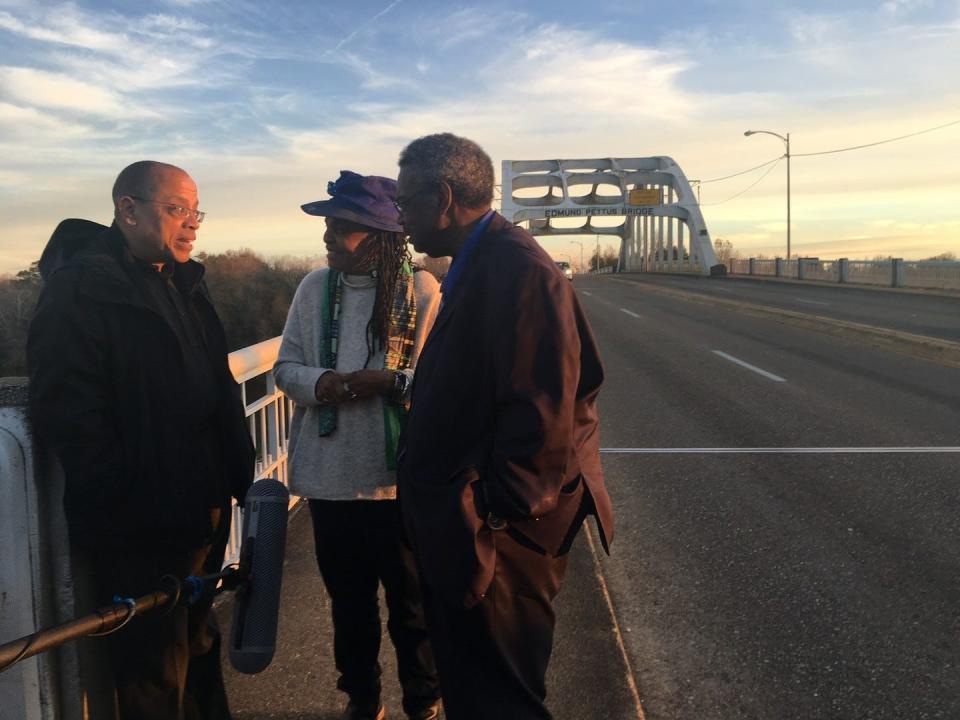'Memphis Massacre' focus of pilot episode of new series as 'Who We Are' project expands

- Oops!Something went wrong.Please try again later.
A longtime public defender turned full-time public advocate for open and honest discussions about what he terms "the history of anti-Black racism in America," Jeffery Robinson is back in his Memphis hometown this week to produce the pilot episode of a new series intended to shed light into the shadowed corners of this nation's past.
With actor Tom Hanks enlisted as a collaborator, the planned series will begin with an episode on the relatively obscure but certainly horrific "Memphis Massacre" of 1866, in which mobs of white citizens and police officers rampaged through Black neighborhoods in what is now Downtown, committing murder, rape and arson (churches and schools were burned).
Robinson's pilot will not be simply a catalog of carnage. It also will explore the ongoing impact of the massacre, which Robinson calls "the spur" that led to the passage in 1868 of the 14th Amendment, which guarantees citizenship and equal protection under the law to persons "born or naturalized in the United States," including the formerly enslaved.
As an article on the University of Memphis website states: "The first large-scale racial massacre to erupt in the post-Civil War South, the massacre in Memphis played a key role in prompting Congress to enact sweeping changes to federal policies and to constitutional law. It also lent a new urgency to an ongoing national debate about the meaning of freedom and the rights of citizens."
Produced with an eye for cable television or a streaming network, Robinson's proposed series would be a continuation of his 2021 documentary feature film, "Who We Are: A Chronicle of Racism in America," and its associated nonprofit outreach program, The Who We Are Project, which works "to promote education, discourse, healing and change" while confronting rather than denying or concealing the role of racism, past and present, in the story of America. The Project is based in Seattle, where Robinson lives, and where he was a longtime public defender and private-practice attorney.
Said Robinson: "We will continue with the message from our film that great countries like ours remain great by addressing the truth, not denying it."
Robinson, 67, has hosted more than 100 "Who We Are" events over the past few years. The latest of these will take place Friday and Saturday (March 15-16) at the National Civil Rights Museum, the institution that included a special tribute to Robinson during its 2022 Freedom Award gala. State Rep. Justin Pearson, the Memphis Democrat whose expulsion from the Republican-majority General Assembly made national news, will be among the participants. The events — which include a Friday night screening of the film — are free.
Developed and directed by sisters Emily and Sarah Kunstler (daughters of William Kunstler, the late firebrand lawyer who defended members of the Black Panther Party and the Weather Underground), the "Who We Are" documentary was inspired by an educational talk Robinson originated while he was deputy legal counsel for the American Civil Liberties Union and director of the ACLU's Trone Center for Justice and Equality. The talk is framed as a fact-based tour through America's history of racial inequity, beginning in 1619, when the first slaves arrived at the Jamestown colony. "From 1619 to 1865 is 246 years when America used enslaved people to create, develop and enrich this nation," Robinson says. "We have had more time in America with slavery than without it."

The "Who We Are" documentary brings together footage of Robinson's stage presentation with scenes shot in Memphis, Tulsa (site of another race massacre), and elsewhere. The movie was distributed theatrically by Sony Pictures Classics in 2021, and later was available on Netflix for 18 months.
In 2022, Robinson screened the movie at the United Nations, and gave a talk to the General Assembly. Actor Tom Hanks, a history buff who has backed film projects about World War II and the U.S. space program, joined Robinson for some of the screenings and talks. Hanks also was the narrator and co-producer for "How to Rig an Election," a Washington Post-distributed short film from The Who We Are Project about the effect of race on the disputed 1876 presidential election.
Hanks will be involved in the Who We Are series as a producer and possibly more. "Yes, I love history," said Hanks, in a statement about his participation in the Who We Are Project. "I have a great affection for the city of Memphis. And I want to know more."

With the Kunstlers again sharing the director's chair, the proposed series would have a format similar to the feature film's, with Robinson again serving as a host and tour guide. For the "Memphis Massacre" episode, he will visit the rampage's epicenter, near Second and G.E. Patterson, and will discuss not just the event and its impact but the debate that continues to rage, even more than a century-and-a-half later, over how to define the violence.
For example, an old Shelby County historic marker calls the event a "race riot," which critics said suggested that the violence was eruptive rather than planned, and that Blacks as well as white were to blame. But a National Park Service and NAACP marker erected in 2016 labels it the "Memphis Massacre."
Robinson said such debates are endemic to discussions of race in America. "The bills that are going around right now that say you can't teach something that makes white people or makes any student uncomfortable are not a new approach," he said.
For example, when Florida was drafting its articles of secession from the United States in 1861, one "declaration of cause" was that members of Congress from the slave-trading Southern states were subjected to "the degradation of gross and constantly repeated insults" from their colleagues from the North. In other words, said Robinson, paraphrasing Florida's would-be Confederates: "'They're saying slavery is bad, and that makes us feel bad.'"

'Who We Are: Memphis'
Presented by the Who We Are Project at the National Civil Rights Museum, 450 Mulberry St.
Friday, March 15: 6 p.m. screening of "Who We Are: A Chronicle of Racism in America," followed at 8 p.m. by a "fireside chat" and question-and-answer session with Jeffery Robinson, founder of the Who We Are Project; State Rep. Justin Pearson; former County Commissioner and activist Tami Sawyer; and Michele Phillips, executive director of Facing History and Ourselves.
Saturday, March 16: 9 a.m. to 3 p.m., a series of "immersive panels and performances" featuring Coby Smith, a founding member of Memphis' 1960s activist group, The Invaders; Michelle Duster, whose books include "Ida B. Wells, Voice of Truth"; Rev. Cornell William Brooks, director of Harvard University's William Monroe Trotter Collaborative for Social Justice, and many others
Admission is free. To pre-register, visit event.brite.com.
This article originally appeared on Memphis Commercial Appeal: 'Memphis Massacre' focus of series pilot; Tom Hanks part of project

